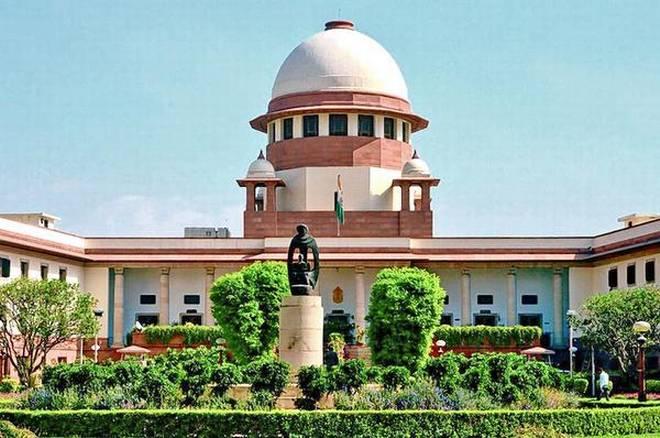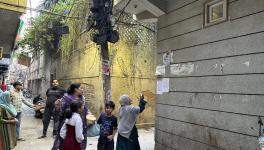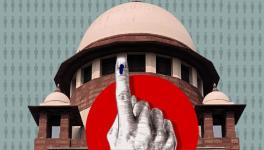CJI Gogoi Sexual Harassment Case: Some Critical Questions for the Apex Court

Image courtesy: The Hindu
When four media outlets published in detail the allegations of sexual harassment of a junior employee by CJI Ranjan Gogoi, everybody was left trying to catch their breath. When the astonishment at the unprecedented Saturday hearing blew over, and a committee was established, many had their doubts, but still, many clung to a ray of hope of justice being done.
But the complainant’s informed decision to withdraw from the proceedings, after being apparently pushed to the corner by the committee, has resulted in a situation that raises a host of burning questions.
The very day the formation of a three-member committee was announced, apparently after CJI Gogoi decided to stay out of the matter and left it to the discretion of his next-in-command Justice Bobde, a host of conscientious and experienced lawyers had expressed their apprehensions and misgivings. Both online and offline, Senior Advocate Indira Jaising and others said that the need of the hour was an external committee which should be given a free hand to probe the charges against the CJI.
But that was not to be. Those at the helm of affairs in the apex court did not go for an Internal Complaints Committee (as mandated under the law), and instead formed a three-member committee which had no statutory backing or provenance. Moreover, the committee is not required to make its report public, so that it can be scrupulously scrutinised. It is just an ad-hoc, informal committee. Whither public accountability?
So, would it be pure naivete to have any hopes of the committee doing justice, because prima facie, justice must not only be done but also seen to be done?
Critical Questions
Now that the complainant has made it known that she is unwilling to participate in the proceedings of the committee, and has narrated in minute detail her travails on all the three occasions she had to appear before the committee (see the report in The Leaflet which has reproduced verbatim the contents of the applications the complainant made to the committee), it is incumbent to raise some essential questions.
First and foremost, why did the three judges, despite repeated entreaties, disallow the complainant from having her lawyer Vrinda Grover present while she was being grilled?
Why did the three judges not read back the record despite the complainant stating that she has lost hearing due to stress in the past year and therefore was unable to hear what Justice Bobde was dictating what she had said to the court clerk?
The three judges repeatedly asked her why she took so long to file her complaint. When there is a catena of judgements of the Supreme Court holding that the delay in filing a complaint by the victim of sexual assault should not be held against her, did it behove the judges to hold it against the lady who finally mustered sufficient courage to bring charges against CJI Gogoi ?
The judges asked the complainant to produce witnesses who would support her cause. How could she bring her colleagues, all junior employees of the apex court, to testify against the CJI when he is wielding the supreme power?
What about evidence? When the complainant requested, in writing, that she be provided with the CDR (Call Detail Records) of CJI Gogoi’s phone and mirror copy of WhatsApp messages and records of calls that he had allegedly made to her phone, the committee brusquely turned it down.
What about the fusillade of questions the committee asked the complainant? A senior lawyer in Delhi, who has been a member of the ICC in a considerable number of hearings in sexual harassment cases, told NewsClick that he once witnessed a complainant gulp down 10 glasses of water while testifying. Did the committee provide an amicable and confidence-inspiring atmosphere in which the complainant could speak without fear?
Many people wonder what happens to “due process” in cases of sexual harassment allegations, especially after the #MeToo movement attained raging popularity. Many question why the accused men are being put on the rack without the due process being followed. In such a situation, it is instructive to read a paper by noted feminist scholar Brenda Cossman where she highlights the structural problems in the insistence of due process, when the odds, from the very beginning, are loaded against women who raise their voices and complain. Isn’t this relevant here?
If an impression is being created that this committee will not be able to deliver anything, and that this is why the complainant has withdrawn from the proceedings, then isn’t it necessary to rectify this impression by some effective steps?
So, finally the big question is: will their esteemed Lordships rise to the occasion and take measures to protect the credibility of the court? Only time will tell.
Get the latest reports & analysis with people's perspective on Protests, movements & deep analytical videos, discussions of the current affairs in your Telegram app. Subscribe to NewsClick's Telegram channel & get Real-Time updates on stories, as they get published on our website.
























